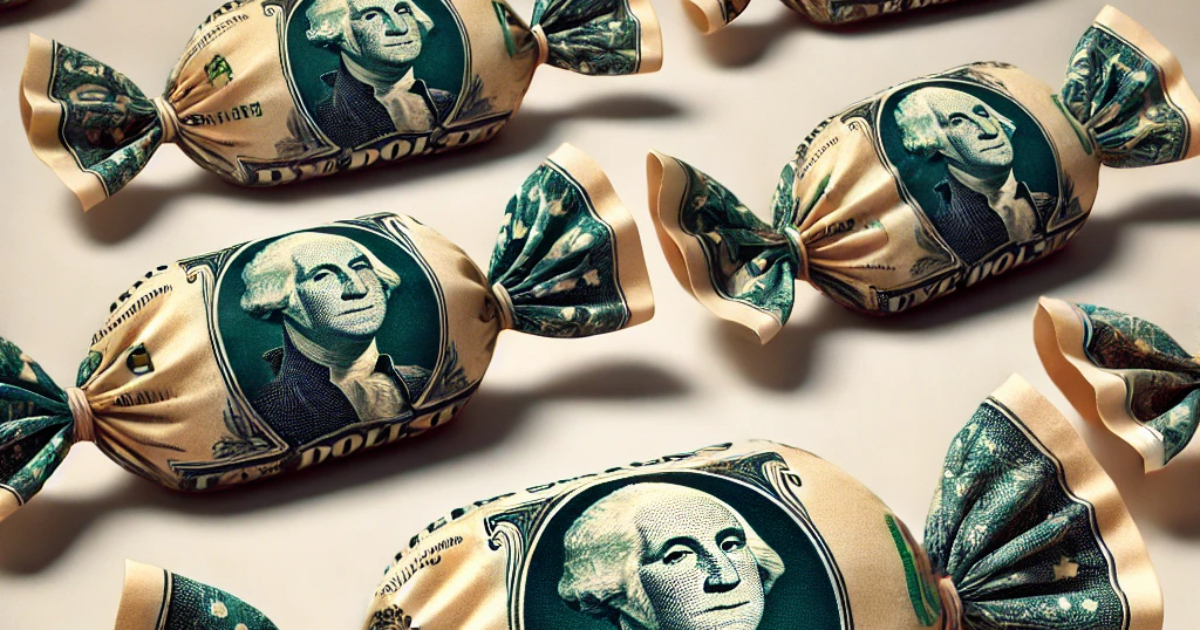In a surreal twist befitting the unique reality of Cuba, candy has bizarrely become a substitute for small change in newly opened dollar stores. A viral story shared by a visitor to the recently launched supermarket at 3ra y 70 in Havana has sparked a wave of sarcastic comments and humorous reflections on the partial "dollarization" of the Cuban economy on social media.
As the Cuban people grapple with this latest affront from the ruling class and try to comprehend explanations from Prime Minister Manuel Marrero Cruz about the need to "partially dollarize the economy to advance in de-dollarization," they find themselves in a true nightmare. Yet, they refuse to give up on using humor as a way to resist any form of order, hierarchy, authority, or power.
"Yesterday, a friend went to the new market at 3ra y 70 and bought several items, paying in cash, but since the change was minimal, they gave it back in candy," a user began her anecdote on social media.
The narrative continued with questions mixing humor and critique:
- If I want to pay with candy at the local market, will they accept it?
- If I gift some candy to a civil registry clerk or anyone else, does it count as a bribe?
- If someone only likes candy from "outside," is that ideological diversion or just a confused revolutionary?
- Will El Toque report the candy exchange rate against the dollar in the informal market?
- Will there be a reference rate depending on the candy's country of origin?
- If I'm caught selling candy on the street, is that currency trafficking?
- If I want to start a business making candy, will it be allowed, or will it land on the list of prohibited self-employment activities?
- When they open the K hotel, can I book a room paying in candy? How many wheelbarrows would I need?
- If candy is sent from abroad, is it considered remittance or donation?
- At the airport, must candy be declared at customs, or does it have commercial value?
- Those who import candy, do they declare it as food or cash transfer?
- If I have more than 20 candies, is that hoarding?
- If a private enterprise wants to give me change in candy, must it be of national production?
- Does Sandrito have a lot of candy at home?
- ...questions like these keep me from resting.
Candy in the Midst of Economic Crisis
The episode of receiving candy as change highlights the everyday absurdities born from Cuba's economic crisis, worsened by the system's partial dollarization. The 3ra y 70 supermarket, recently opened, has faced multiple criticisms for its exorbitant prices and its disconnection from the reality of most Cubans. For instance, a bottle of rum priced at $779 sparked outrage on social media. Meanwhile, essential items like meat or detergent are sold at prices only affordable to a privileged few.
These supermarkets, designed to attract foreign currency, have intensified social polarization, excluding the majority from participating in the dollar-based economy.
The Dollar, Candy, and the Cuban Pocket
The partial dollarization in Cuba has skyrocketed the value of foreign currencies in the informal market, with the dollar reaching 330 pesos on Tuesday, January 7. In this setting, candy as change is a "creative" solution, yet it underscores the financial system's fragility and the regime's relentless pursuit of foreign currency.
The candy story starkly contrasts with the luxury inaugurations of these supermarkets, where shelves are stocked but only accessible to those who can afford them. For the majority, candy not only sweetens coffee but also an increasingly bitter economic reality.
A "sweet solution" that sours the lives of Cubans, candy as change in a luxury supermarket encapsulates the contradictions of the Cuban economy. In a nation where the surreal is routine, this incident adds to the long list of examples of how popular ingenuity and humor transform adversity into unforgettable tales. However, beneath the irony, the episode reveals deeper issues. Dollarization, far from being an inclusive solution, is widening the gap between those with access to foreign currency and those barely surviving on Cuban pesos.
Understanding Cuba's Economic Challenges
What sparked the use of candy as change in Cuban supermarkets?
The use of candy as change in Cuban supermarkets reflects the economic absurdities stemming from the country's crisis and partial dollarization, where traditional currency exchange is challenged by financial constraints.
How does the partial dollarization affect Cuban society?
Partial dollarization increases social polarization in Cuba by creating a divide between those who can access foreign currency and the majority who are left struggling with the local peso.
